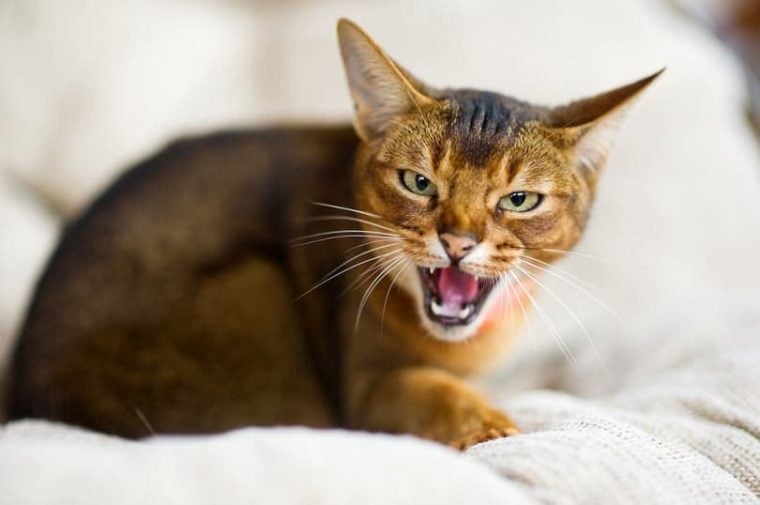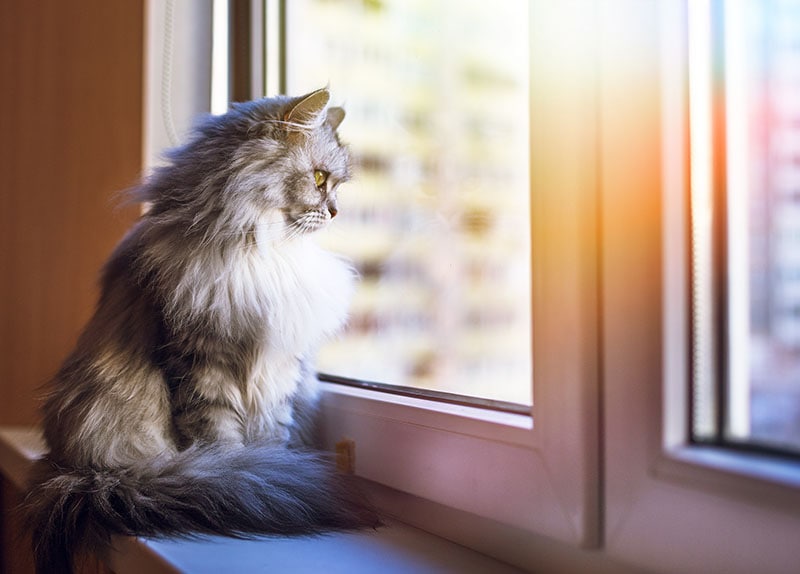
Cats are curious creatures, and there’s still a lot we don’t know about them. One of the things that we’re figuring out is what stresses a cat out. For example, sounds and smells that we love can make our furry friends completely miserable instead.
Since cats have a heightened sense of hearing and smell, they react differently to certain things than we do and may become completely stressed out. In this guide, we’ll give you six things that stress your cat out. It’s always good to know what stresses out your feline pal, so you can do your best to alleviate their fears.
The 6 Common Things That Stress Cats Out
1. Strong Scents
Strong scents can be a real stressor for the feline in your family. Cats have a strong sense of smell left over from when their ancestors lived in the wild. While you might find the scent of peppermint to be energizing and refreshing, it’s a strong scent and might be stressing your cat beyond belief.
Citrus is another strong smell that cats don’t react well to, though it’s unclear why. It’s thought that the sweetness combined with the pungent smell of sour and bitter is enough to overwhelm the cat. Although your cat is unlikely to eat oranges or limes, citrus is toxic to felines, so avoid spraying cleaners or air fresheners containing citrus on your cat’s bedding or toys.
2. Fireworks and Thunderstorms
Unexpected loud noises such as fireworks and an approaching storm may alert cats to impending danger, which is why they often run and hide when they hear the sounds. Cats have super hearing, so these sounds are louder than they are to us, and they see them as a threat.
A white noise machine or putting your cat in a room where it’s quiet before either of these events happen is the best way to try and keep the cat calm until the noise ends. If you can, stay with your cat during the show or the storm to keep it calm. If your cat has severe anxiety during these situations, it’s best to contact your vet for advice and possibly anti-anxiety medication.

3. Relocating Houses
Cats are instinctively territorial and enjoy familiarity in their territory and routines. A move is one of the most stressful things for a cat to cope with, as they suddenly find themselves in a brand new territory, with the location of their favorite toys, bowls, scratching post, beds, and litter boxes all changed.
The sounds and smells in the new environment may also exacerbate your cat’s stress. Contractors and movers may also stress a cat if they don’t appreciate strangers in their home.
4. Essential Oils and Cleaning Products
Almost all essential oils are toxic for cats. You should not use or diffuse essential oils around cats unless directed to do so by a professionally trained holistic veterinarian.
Cats can become irritated when they smell pungent essential oils and cleaning products, and they’re also sensitive to aerosol sprays. The smell of pine and bleach is also unpleasant and could be too strong for your cat to handle. It’s best to avoid using these types of cleaners, especially near the cat’s litter box or where it sleeps. Instead, try using a mild cleanser that is pet-friendly and keeping oil diffusers in a closed room away from your cat.

5. Cats, Dogs, and Other Predatory Animals
Strange cats, dogs, and other predatory animals will certainly put your cat on edge. Dogs are, of course, at the top of that list, with the smell of another cat’s urine coming in at a close second. Your cat is safe indoors, but if you have stray dogs or coyotes creeping around outside of your home, your cat may feel threatened.
Installing motion-detecting lights, sprinklers, and noisemakers can reduce visits from wildlife, or you could use chemical or physical deterrents to protect your home and keep your cat happy.
6. A Change in Your Work Schedule
Believe it or not, a simple change in your work schedule can stress your cat out. For example, if you get a new job, start working outside of the home, or even start getting home later, your cat will pick up on it and become stressed. Cats like schedules, and they like things in a certain way. A change to their way of life can lead to stress. Spending a little more time with your cat every day can help it adjust to your new schedule.

Signs that Your Cat Is Stressed
Cats often hide their emotions when they’re unwell, but here are a few signs that your pet is stressed out:
If you notice any of these signs of stress in your cat, it’s best to contact your vet. Although some causes of stress can be remedied without veterinary assistance, the same signs that we listed could also point to another health issue that only a professional could identify.
Conclusion
Cats can get stressed but usually for different reasons. For example, just because you love essential oil that smells like orange peels doesn’t mean your cat is going to. In fact, the pungent smell might stress your cat out. If you can’t find the reason for your cat’s stress, it’s best to talk to your vet so that they can diagnose your feline pal and provide treatment options.
Featured Image Credit: Slava Dumchev, Shutterstock







